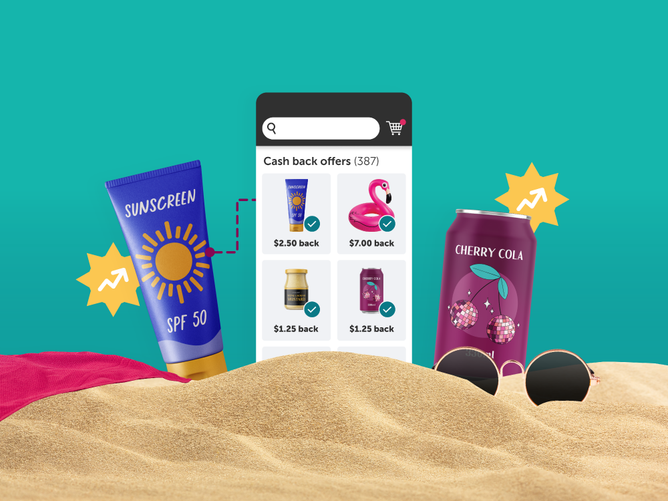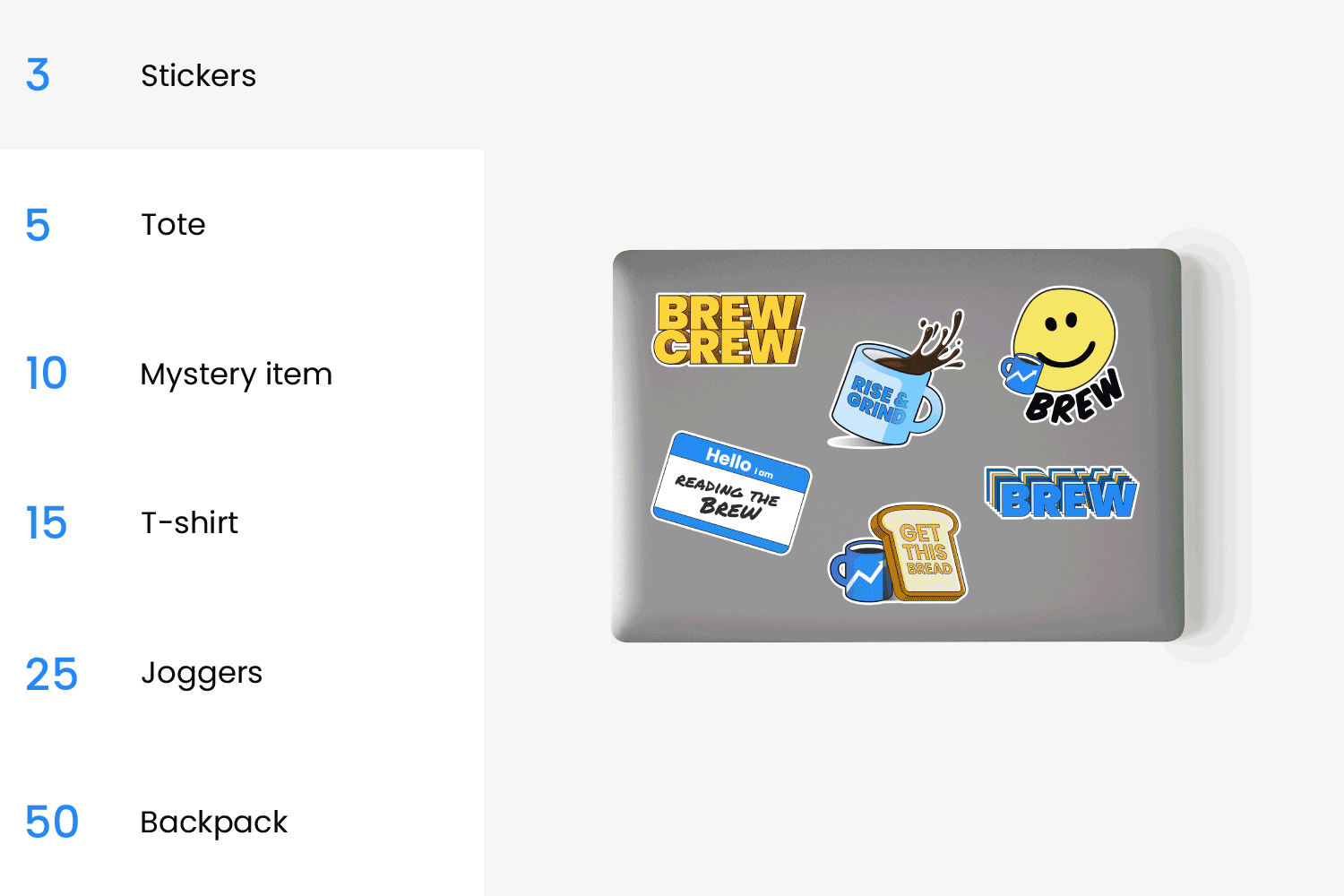|
It’s Thursday. The House voted 352-65 Wednesday to ban TikTok in the US if the app isn’t spun off from its Chinese-owned parent company, ByteDance, landing a possibly huge blow to our daily average screen time. The bill now goes to the senate.
In today’s edition:
—Jasmine Sheena, Ryan Barwick, Katie Hicks
|
|
Amelia Kinsinger
|
It’s been over a year since ChatGPT first rolled out, and while constantly hearing the phrase “generative AI” has been really a(i)nnoying, there’s no doubt the technology has transformed the world. It was one of the hottest topics at CES earlier this year, and SXSW even has a dedicated track for the tech.
When something’s trendy, marketers tend to take notice, and we spoke to execs at several agencies about how they have taken ChatGPT and other generative AI tools into their own hands. They told Marketing Brew that, so far, adland has found unique ways to incorporate generative AI into workflows while working to ensure there is still a human touch, all while tech giants and the federal government alike weigh potential restrictions on the tech.
Lead by example: For independent shop Billion Dollar Boy, generative AI has been useful in influencer marketing. The agency set up Muse, an emerging tech arm to help leverage AI for influencer content creation for clients, Thomas Walters, Billion Dollar Boy’s founder and its European CEO, told us.
- Muse, which has worked with AI artists like Jo Ann and Elmo Mistiaen on brand campaigns, has also worked with brands including Lipton Iced Tea and Versace, Walters said.
- “[It’s] really at the bleeding edge of advertising,” he said.
Internally, the agency is interrogating ways to use AI to optimize work, Walters said. BDB set up a taskforce made up of folks across its departments, from leadership to business affairs, to identify workflow problems and figure out how to solve them using AI tools, Walters said. For example, after realizing the agency’s staff was spending a lot of time manually performing due diligence checks on influencers, the agency created a tool it built using ChatGPT that evaluates influencers’ posts and applies a “risk rating.”
Maxime Rozencwajg, senior account director at BDB, said that the agency spent months experimenting with ChatGPT and other AI with artists and clients. Through its trial-and-error process, the agency and its legal team have built out a framework for AI that aims to “protect our clients as much as possible,” Rozencwajg said. “But we don’t have all the answers yet. No one has.”
Continue reading here.—JS
|
|
|
Growing your average order value (AOV) by any percentage is an accomplishment. But imagine a 26% increase—pretty amazing, right?
Well, the cookware brand Made In did just that. And the key to their boost in sales was consolidation with Klaviyo.
Made In came to the table with strong email, SMS, and reviews programs. But each one was siloed in its own platform, making a cohesive digital experience impossible.
That all changed when they moved their email, SMS, and review syndication under one roof with Klaviyo. Made In reduced unsubscribes by 66% and surpassed 100k five-star reviews (on top of the 26% AOV increase).
Learn more about Made In’s strategy in Klaviyo’s guide to increasing e-commerce revenue. You’ll also get step-by-step guidance on how to implement proven marketing tactics.
Download the guide.
|
|
Amelia Kinsinger
|
More than half of advertisers expect Google to punt the depreciation of third-party cookies—again.
That’s according to the Interactive Advertising Bureau’s 2024 State of Data report, which surveyed more than 500 “data and advertising decision-makers” from brands, agencies, and publishers.
Though 94% of respondents said cookies will eventually disappear, only 42% expected it to happen this year, the IAB found. FWIW, Google still says it’s on track to phase out cookies by the second half of 2024.
What else is in the report: Advertisers are (predictably) anticipating signal loss across the advertising ecosystem, either because of aforementioned platform changes or because of the tsunami of privacy legislation at the state level. This year, new privacy legislation in Texas, Oregon, and Montana will take effect, and New Hampshire just passed a privacy bill last week.
- 44% of respondents representing brands said they’ve turned to external legal counsel.
Meanwhile, advertisers expect their jobs to get harder: Nearly three-quarters of advertisers said they expect to be less reliant on signals like “browser history, real-time signals, PII (e.g., email, name) and location.” Around the same percentage of respondents said they expected their ability to measure ROI and attribute campaigns to be reduced.
Nearly six in 10 said they’re less confident in the accuracy of the data shared by programmatic and social media platforms. Not great!
Game plan: In response to those changes, advertisers are emphasizing their own data. More than 70% said they’re planning on increasing their first-party data sets, up from just 41% in 2022.—RB
|
|
Screenshots via @princeandprincessofwales/Instagram, @culturework/TikTok
|
Each week, Marketing Brew recaps what people are talking about on social media, the trends that took over our feeds, and how marketers are responding.
Gone girl? Conspiracies and concerns about Kate Middleton’s whereabouts are consuming social media—and providing a pretty good example of how not to do PR. Kensington Palace has maintained that the princess has been recovering from abdominal surgery, but decided to release a Mother’s Day photo of her with her kids (that Will apparently took). Once people noticed that the photo had been edited and after various outlets and platforms retracted or marked the image as “altered,” speculation only seemed to intensify. In a post on the official @KensingtonRoyal X account, Middleton took responsibility for the Photoshop job, which had some people groaning—and others laughing. (What’s more believable: the prince taking a family portrait or the princess overseeing the palace’s graphic design?)
Now, some people online are wondering if a recent image of Middleton in a car could have been doctored as well. This whole saga is a reminder that some people on the internet never forget.
“If it’s Boeing, I ain’t going”: The unexpected death of a former Boeing quality manager turned whistleblower, as well as recent incidents involving Boeing planes—including a “technical event” that left about 50 people on board a flight to New Zealand injured—are causing a stir. Some travelers are sharing resources for ways to avoid booking flights on Boeing planes, others are woefully joking about the seeming newfound dangers of flying and wondering if Boeing will ground its planes. On Tuesday, Boeing responded to the findings of an FAA audit, saying in a statement that it is working on “a comprehensive action plan to strengthen safety and quality, and build the confidence of our customers and their passengers.”
Undo send: Is anyone okay this week? QVC was called out after it sent a marketing email with a racially insensitive subject line on Friday. The company sent a follow-up email from its president to recipients later that day, apologizing for using “derogatory language that is offensive, particularly to the Asian community and women.”
Continue reading here.—KH
|
|
|
Summer’s just around the corner  . Are your marketing strategies ready to make it one for the record books? If you need a primer, turn to the Ibotta Performance Network’s Summer Kickoff 2024 guide. You’ll find everything you need to know about the seasonal trends set to shape the warmer months. Make this summer count. . Are your marketing strategies ready to make it one for the record books? If you need a primer, turn to the Ibotta Performance Network’s Summer Kickoff 2024 guide. You’ll find everything you need to know about the seasonal trends set to shape the warmer months. Make this summer count.
|
|
Morning Brew
There are a lot of bad marketing tips out there. These aren’t those.
But wait, there’s more: Some new elements that Meta might be considering for its Meta Verified subscription offering, including the ability to add links to Reels.
Pulse check: Tips on conducting a sentiment analysis on social media.
Error message: Examples of effective brand 404 pages.
Case in point: Turn tactics into e-commerce revenue. Klaviyo’s guide lists 13 proven ways to boost message engagement and conversions. Learn how leading brands have leveraged them—and how you can too.* *A message from our sponsor.
|
|
Morning Brew
|
Stories we’re jealous of.
-
Cosmopolitan covered the economics of family vlogging and the detrimental effects it can have on children, both financially and mentally.
-
The New York Times wrote about how some newsletter-centric media startups are trying to succeed by focusing on niche audiences.
-
The Verge wrote about the rarity of the “kill notices” that wire agencies issued on the widely circulated (and photoshopped) photo of Kate Middleton and her children.
|
|
ADVERTISE
//
CAREERS
//
SHOP
//
FAQ
Update your email preferences or unsubscribe
here.
View our privacy policy
here.
Copyright ©
2024
Morning Brew. All rights reserved.
22 W 19th St, 4th Floor, New York, NY 10011
|
|










